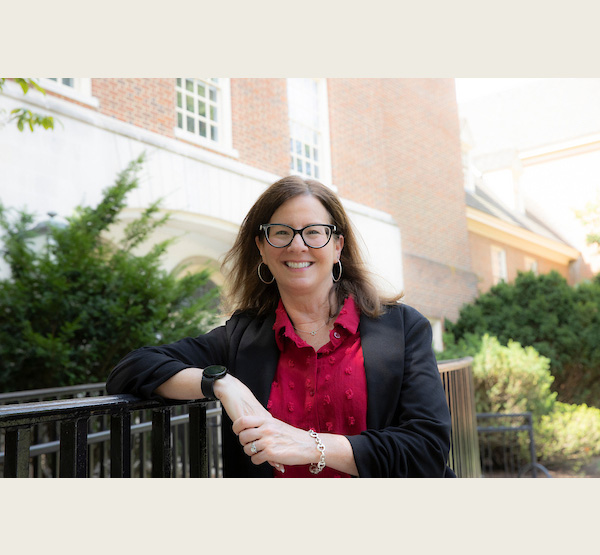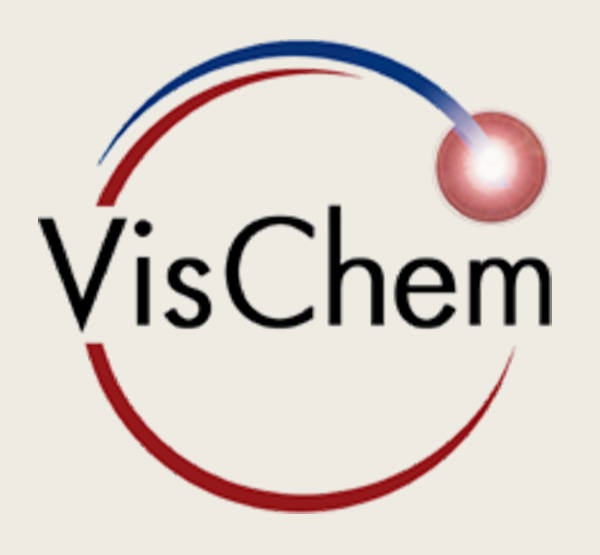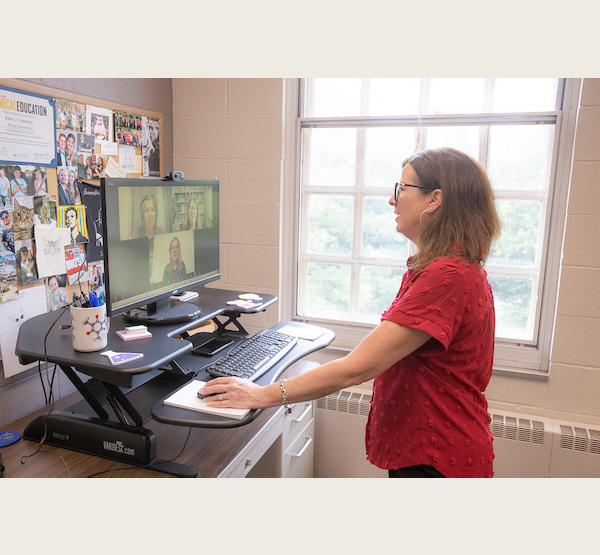Ellen Yezierski awarded highest recognition for a researcher in her field
Miami University professor honored with ACS Award for Achievement in Research for the Teaching and Learning of Chemistry
Ellen Yezierski awarded highest recognition for a researcher in her field

Ellen Yezierski, professor of Chemistry at Miami University, has been honored with the highest recognition for a researcher in her field.
Chemical & Engineering News announced on Monday, Aug. 18, that Yezierski is among the 2026 winners of the American Chemical Society (ACS) National Awards.
She will receive the ACS Award for Achievement in Research for the Teaching and Learning of Chemistry. The award recognizes outstanding contributions to experimental research that have increased understanding of chemical pedagogy and led to the improved teaching and learning of chemistry.
The award will be presented in March at a banquet during the 2026 Spring National ACS Meeting in Atlanta.
Yezierski — a top scholar on the professional development of high school chemistry teachers in the United States whose research focuses on chemistry education — said she is honored to be joining previous award recipients because she values their contributions so much.
“All I want for this work is for it to be visible so it can make a difference in the teaching and learning of chemistry, and so this shines a big spotlight on the research,” said Yezierski, who has been director of Miami’s Center for Teaching Excellence since 2018.

Groundbreaking research
Yezierski joined Miami in 2010 and in 2016 was designated an ACS Fellow for conducting groundbreaking research that improved instruction and student learning as a direct result of Target Inquiry, a visionary professional development model for high school chemistry teachers.
She directed Target Inquiry at Miami University (TIMU), a nationally recognized research initiative and high school chemistry professional development program funded by the National Science Foundation (NSF) since 2011. The teaching materials developed in TIMU are still being disseminated to high school teachers all over the world; however, the professional development and research ended in 2020.
More recently, Yezierski has served as principal investigator for VisChem, which is also NSF-funded and supports the use of dynamic, molecular-level visualizations in secondary chemistry classrooms.
At Miami, her research has garnered $4.85 million in total external funding from NSF as a principal investigator (PI) or co-PI ($6.32 million in career total funding). She has produced 73 peer-reviewed publications and 360 research presentations.
Her research has impacted thousands of chemistry teachers here and abroad.
“Between the Target Inquiry project and VisChem project, we have about 7,000 users worldwide of the instructional materials and methods we developed,” she said.
Carole Dabney-Smith, chair and professor of the Department of Chemistry and Biochemistry, said this competitive international award from the American Chemical Society represents Yezierski’s entire body of work.
“It exemplifies the outstanding work that she does and the respect the field has for her, her talents, and research,” she said.
A full circle moment
Yezierski credits her Arizona high school chemistry teacher Imogene Bennett for helping to spark her passion for chemistry.
“I fell in love with the idea of figuring out things that you couldn’t see that explained why everything happened the way it did,” she said. “I thought that was really cool, and I still think that’s why I love chemistry.”
Yezierski became a high school chemistry teacher in 1989 and taught for seven years until earning a doctorate from Arizona State University in 2003 after having two children, who are now Miami alumni. Connor Yezierski '19 is a senior chemist for Zeller+Gmelin Corp. in Richmond, Virginia, and daughter Kate (Yezierski) Harding '20, is a chemistry teacher at Clinton Junior Senior High School in Wisconsin.
Yezierski's background as a chemistry teacher has been invaluable to her research.
“It showed me what problems needed to be solved, and it showed me what kinds of solutions would be acceptable to me (as a teacher),” she said. “I don’t think I have the teacher ‘street cred’ anymore, but, fortunately, all of the teachers I work with do — and they are the best advocates for the work.”

Making an impact
Yezierski has worked with hundreds of chemistry teachers in the United States on teaching methods. Next year, 700 high school chemistry teachers will participate in VisChem Institutes.
A 2014 NSF grant project focused on the art of inquiry in chemistry education.
Fairfield High School teacher Kyle Jones, a Miami alumnus who had been teaching chemistry for eight years during that project, said the program was already changing his approach in the classroom.
"I am more aware of the nature of science and research as I teach," Jones said at that time. "In the past, there have been certain times when I felt that I needed to push out the content. Now, I slow down and focus on student discovery."
Yezierski’s impact also has been seen in former students and postdoctoral researchers at Miami.
Matthew Wu, assistant professor of Chemistry and Biochemistry who directs a research group in Chemistry Education at the Ohio State University, was Yezierski’s postdoctoral researcher from 2020-2023. He is listed as first author on six research papers.
“Working with and learning from Ellen was absolutely incredible,” Wu said, crediting the professor for his understanding of teacher professional development, chemistry concept development, and much more.
“The ways in which she would encourage me, graduate students, high school chemistry teacher participants, and colleagues in our community were energetic, timely, and most importantly, laser-focused for cultivating growth,” he said. “Even now, I still leverage her research and teaching philosophies as the basis for my own research and teaching.”
As a researcher, Yezierski said she has come full circle in being able to have an impact on the teaching and learning of chemistry at the high school level — first as a teacher, now as a researcher.
“It’s a really cool circle,” she said. “I’m honored.”